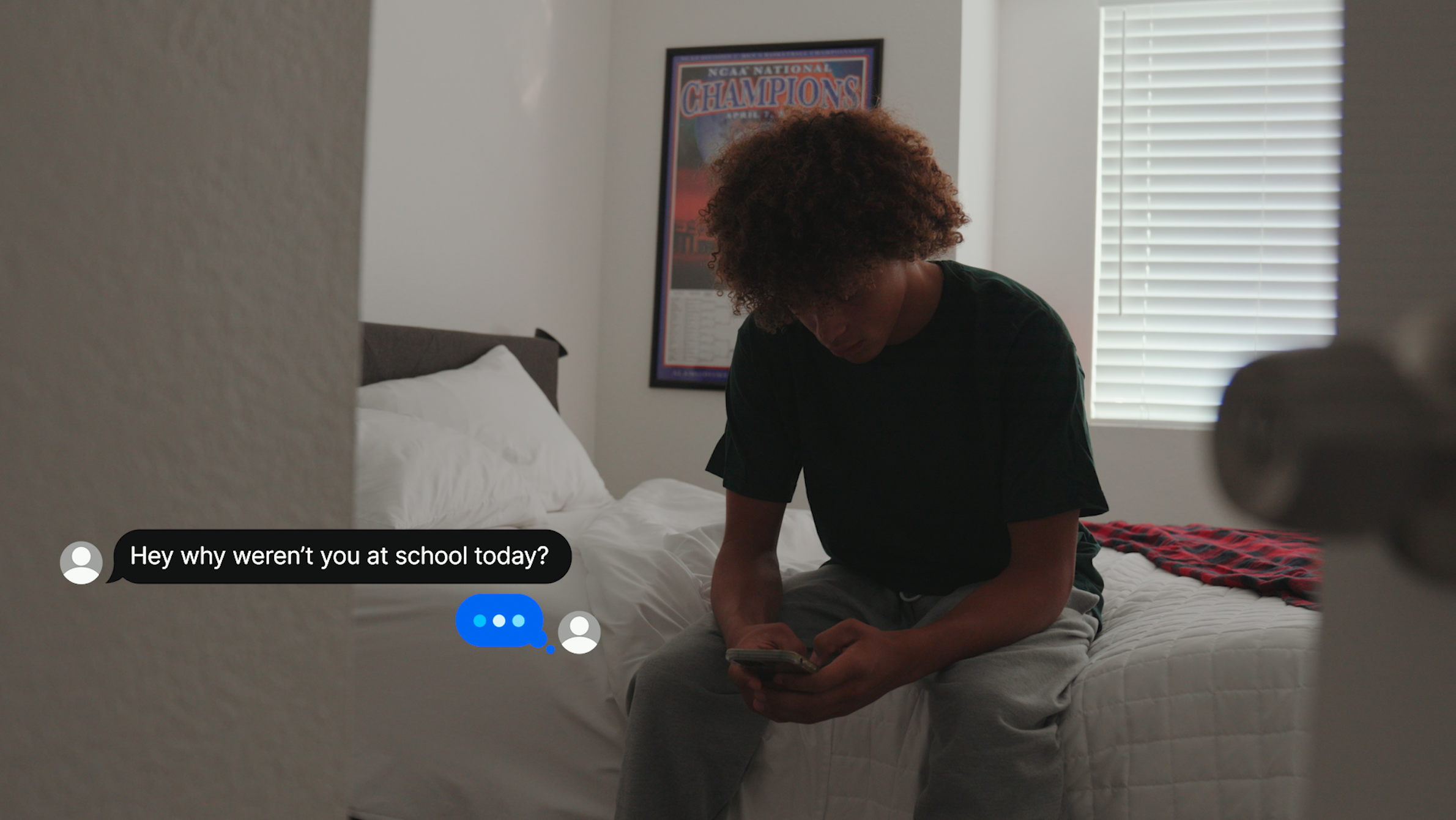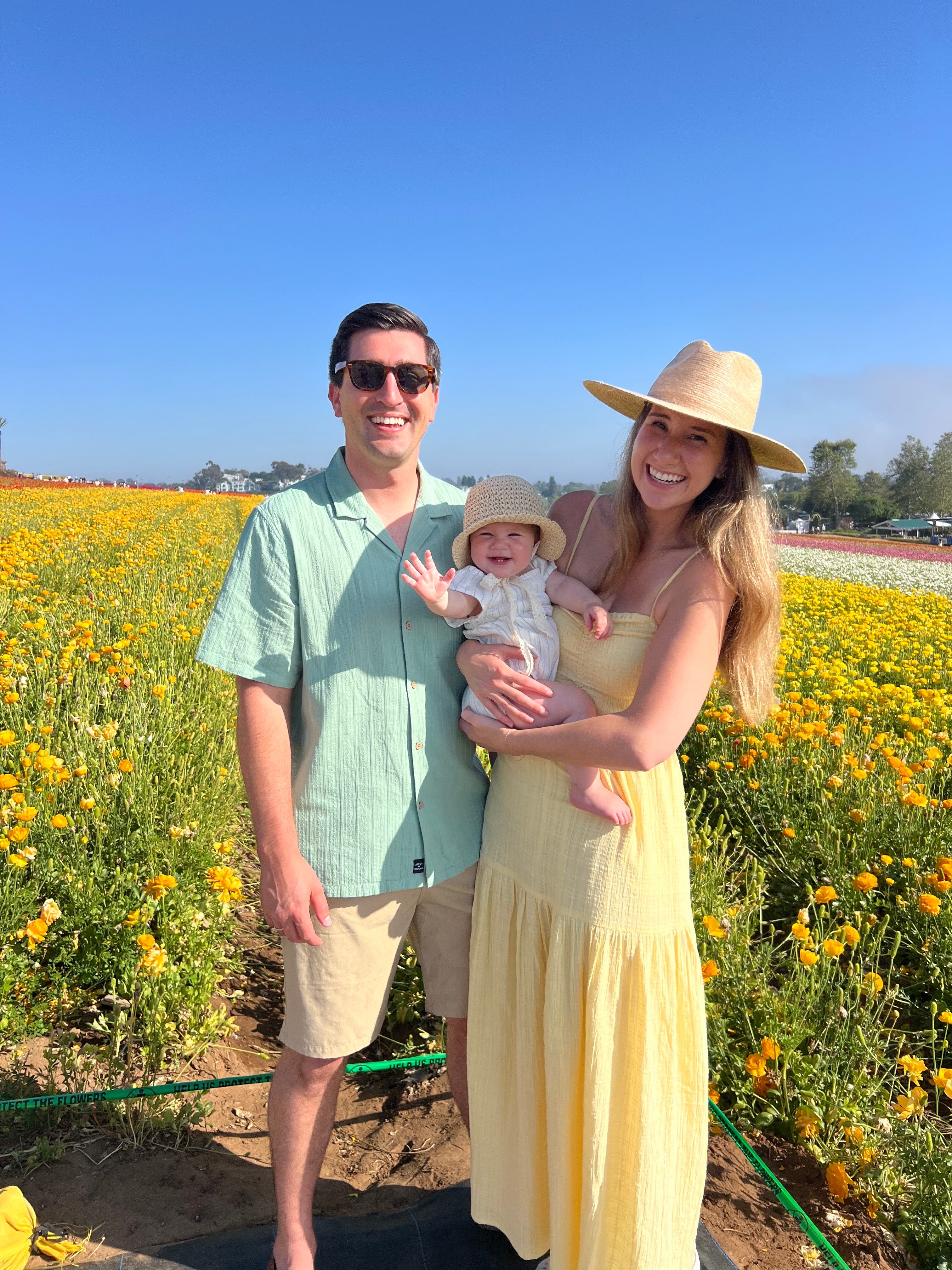Building a Suicide Prevention Protocol: Insights from Wayne-Westland
Schools are often the first line of defense in supporting student mental health and preventing youth suicide. Recognizing this responsibility,...
4 min read
Care Solace Sep 28, 2023 9:07:20 AM
.png)
Carlos Mares, a high school therapist, faced immense challenges growing up, including grappling with his sexual orientation in a society that often lacked understanding. He overcame adversity, survived two suicide attempts, and now stands as a symbol of resilience.
By Carlos Mares, Wellness Therapist at Nuview Bridge Early College High School
I was once the kid I now treat as a therapist. I was the kid who hid his sexual orientation. I was the kid whose parents loved him but misunderstood and rejected him. I was the kid who was kicked out of the house and had to couchsurf. And I was the kid who tried to take his own life. Twice.
My parents were just teenagers when I was born, but amazingly they both still managed to go to college and graduate. They were scrutinized and criticized by their own community — not for being young parents, but for following their dreams of earning degrees and building careers. Had they submitted to the dominant thinking, my mom would have stayed at home to raise me, their only child.
I was a good kid who performed well academically. In high school, I was part of ASB (Associated Student Body) leadership. I gave my parents a lot to be proud of. But I was coming to a life-changing realization. I was gay. Back then, there were no support groups, no resources, no conversations. I never considered going to my school counselor with my inner turmoil. And I knew my parents would not want to hear about it; I knew what they thought about “those people.”
But hear about it they did. I was outed my senior year of high school. Someone posted a picture of me and a guy on social media, and my mom saw it. She called me immediately and said, You better be with a girl.
My world changed when I got home. If that’s how you’re deciding to live, you can forget about college. In fact, don’t bother finishing high school. There’s no hope for you now — or in the afterlife. So I broke off my unacceptable relationship and obeyed my parents’ new restrictions and supervision.
On the outside, I was cooperating. On the inside, I was suffering.
I couldn’t be myself, and I was entertaining thoughts about ending my life. Maybe it was true that I didn’t deserve to exist. I asked a friend to bring his dad’s painkillers to school. He was surprised; that wasn’t me. I told him I just wanted to try one. But I took all of the pills he gave me — and I overdosed.
The doctor, a complete stranger to me, was empathetic and kind. He really saw me. “What’s making you feel unsafe?” he asked. I’m not accepted, I told him. He talked with my parents, who were crying. I knew the doctor had my back. And he gave me something I desperately needed: understanding and advocacy. He said, “Your parents aren’t ready to talk about this. My daughter is a student life coordinator at a local university. She can connect you with a group that will support you.”
I knew the doctor had my back. And he gave me something I desperately needed: understanding and advocacy.
My parents had no problem with me joining a university group. The group was essentially to support students with the transition to college. I was nervous — but eventually, I worked up the courage to go because the group was offering tickets to see the comedian Margaret Cho! They were open, inclusive, and truly supportive. I was never judged or labeled. And I knew right away I’d be going to school there. I felt at home.
Unfortunately, that special space was not representative of the rest of my world. My parents’ solution for “fixing” me was to take me to church. Not to therapy. We were never regular churchgoers before, so it wasn’t a true community for us. It was yet another place to feel alienated and alone. I was enveloped in darkness and tried a second time to end my life — that time by driving recklessly and getting in a serious accident.
I finally went to my school counselor. I knew I could not continue living the way I was. “You’ll feel better soon,” she said. But I’ve been feeling like this for a while, I replied. She sent me on my way with a cookie and a piece of paper with therapists’ names. The school counselor could not (or would not) offer the help I needed. That was the moment for me. I decided I would do her job one day, but better, way better. The road to my becoming a school counselor was clear to me, but certainly not smooth.
A week after my high school graduation, someone in my family’s circle spotted me out in public with a guy. My parents found out and kicked me out of the house. I’d already gone to college orientation and excitedly bought my books, which they threw in the trash. But I took them out. I was going to college. I was going to find a way.
I stayed with my grandparents, and I slept on people’s couches. I met some beautiful, amazing people in school who believed in me. When I felt overwhelmed, defeated, or got tempted to try to end my life a third and final time, I decided I couldn’t give up. I’d come so far. I had scholarships, a good job on campus, and friends. I was proving that I had enough resources to stand on my own.
After my beloved grandmother passed away, my parents worried about me – and rightfully so. They knew she served as a source of unconditional love for me when they did not. My parents said they wanted to find a way forward with me. It will be a process for us, they said. I was willing to participate in that process. We began rebuilding what was lost, and now, we are close.
My parents didn’t understand my career choice at first. Now they understand my motivation: I didn’t have access to mental health care in high school. Yes, I was fortunate; I found what I needed outside of high school. The university student life group gave me access to physical resources, mental health resources, and many compassionate hearts. What happens to high school students that never find such a space?
Now I run a high school Wellness Center that offers physical resources, mental health resources, and my compassionate heart. If my 17-year-old self walked in the Wellness Center, I’d greet him warmly and with open arms. I’d say, I’m so glad you're here. I’d show him his presence is honored and assure him that his needs will be met.
This is the message with which we can empower young people, especially the most vulnerable: We’re going to walk this path together. You’re not going to have to figure it out alone. And as we move forward together, know your life has immense value — exactly as it is today.
.png?width=194&height=194&name=Carlos%20Mares%20(2).png)
Because of who I am and what I represent, people closed many doors on me. I dreamed of becoming a therapist who could empower students to open doors for themselves, as I’ve learned to do. I use social emotional healing arts to help provide equitable access to mental health support and to encourage students’ personal agency. I believe that is a way to knit fearlessness, acceptance, and connection into the fabric of school culture — and a way to break the stigma around youth mental health.

Schools are often the first line of defense in supporting student mental health and preventing youth suicide. Recognizing this responsibility,...
.png)
When someone you love dearly dies by suicide, you’ll experience a range of emotions as you grieve. Some moments you may feel angry; in other moments,...

Becoming a parent changes everything. For Tyler Chamness, it brought a deeper sense of purpose—and a new way to care for his mental health.